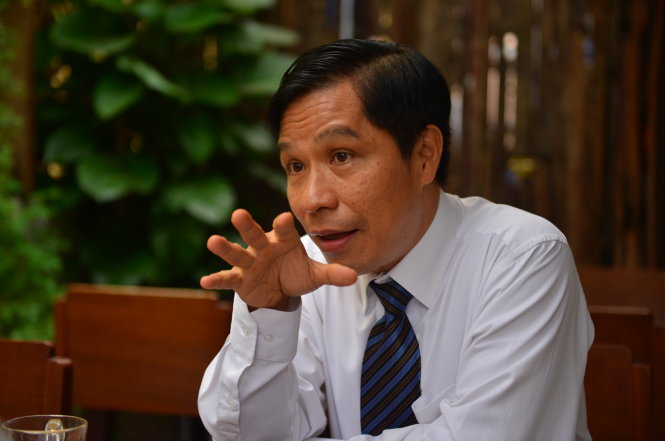More delays are expected for the construction of Ho Chi Minh City’s first metro line due to the insufficient provision of capital.
Le Nguyen Minh Quang, head of the city’s Management Authority for Urban Railways, told Tuoi Tre (Youth) newspaper that the city’s Metro Line No.1 project continues to face mounting challenges related to investment.
Stretching 19.7 kilometers across the city, Metro Line No.1 connects Ben Thanh Terminal in District 1 with Suoi Tien in District 9, with stops in District 2, Binh Thanh District, and Thu Duc District.
The goal of inaugurating the metro line in 2020 could be seriously affected by some contractors opting to put construction progress on hold and others considering terminating their contracts, all due to insufficient investment from the project’s developers.
If construction progress is stalled, contractors will be unable to keep their workers and experts, the official said, adding that human resources will have to be rehired when construction resumes, at additional costs for the companies involved.
Several contractors are concerned over the rationale behind such an issue, particularly in light of the financial support from the Japanese government.
The slow disbursement of official development assistance (ODA) provided by Japan has hurt the trust of the project’s contractors, Quang elaborated.
Vietnam has signed three ODA deals worth over VND31.2 trillion (US$47.4 billion) with the East Asian country, of which only VND10.8 trillion (US$1.37 billion), about 34 percent, had been disbursed since April.
The amount is expected to rise a meager four percent by September.
While the investment needed for the project in 2017 is estimated at VND5.42 trillion ($238 million), the Ministry of Planning and Investment has only allocated VND2.1 trillion ($92.2 million), Quang said.
To aid the process, the Ho Chi Minh City People’s Committee has been forced to advance VND500 billion ($21.9 million) to the project management.
 |
| Le Nguyen Minh Quang, head of the Ho Chi Minh City Management Authority for Urban Railways. Photo: Tuoi Tre |
Snail-paced procedures
The original estimate in 2006 stated that the metro line project would cost about $1.4 billion, Quang said, adding that experts from Japan later recalculated estimations to $2.491 billion in 2008.
Following several reports by the Ho Chi Minh City administration, the new investment budget was approved by the central government in 2011.
The prime minister then requested the Ministry of Planning and Investment coordinate with relevant agencies to report the adjusted plan to the lawmaking National Assembly.
However, the repot has yet to be submitted to the National Assembly and the planning ministry said it cannot do anything without a decision from the lawmaking body.
In order to eliminate the problem, Quang suggested the Ministry of Planning and Investment follow the direction of the prime minister, and approve the provision of investment for Ho Chi Minh City within the 2016-20 period.
For a permanent solution, Quang says the amount of ODA loans that have been agreed between Vietnam and Japan should be disbursed in accordance with necessity and the progress of the project.
The measure has been proposed by Japanese authorities and supported by the Ho Chi Minh City People’s Committee.
If the disbursement requires a decision from the National Assembly, the premier should have such authority and competent authorities will have to comply with his direction, Quang said.
“We cannot fail to keep our promises with international partners just because of problems with internal procedures,” the official asserted.
Like us on Facebook or follow us on Twitter to get the latest news about Vietnam!


Max: 1500 characters
There are no comments yet. Be the first to comment.